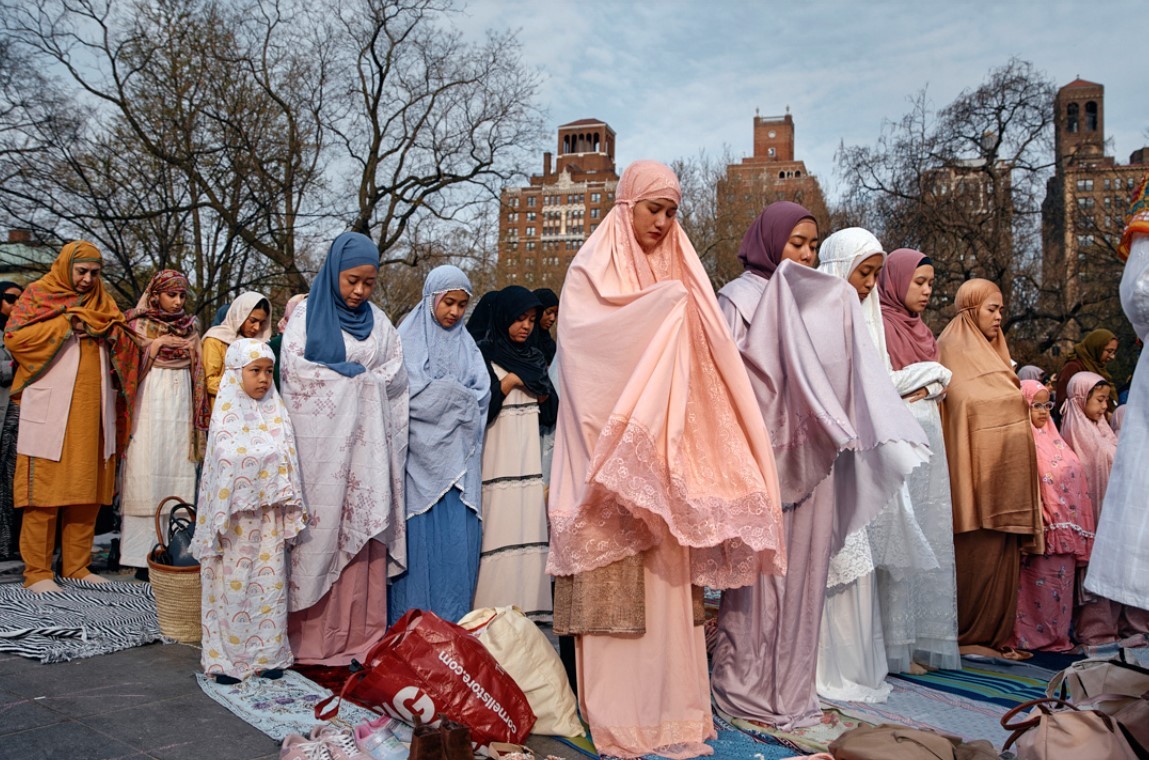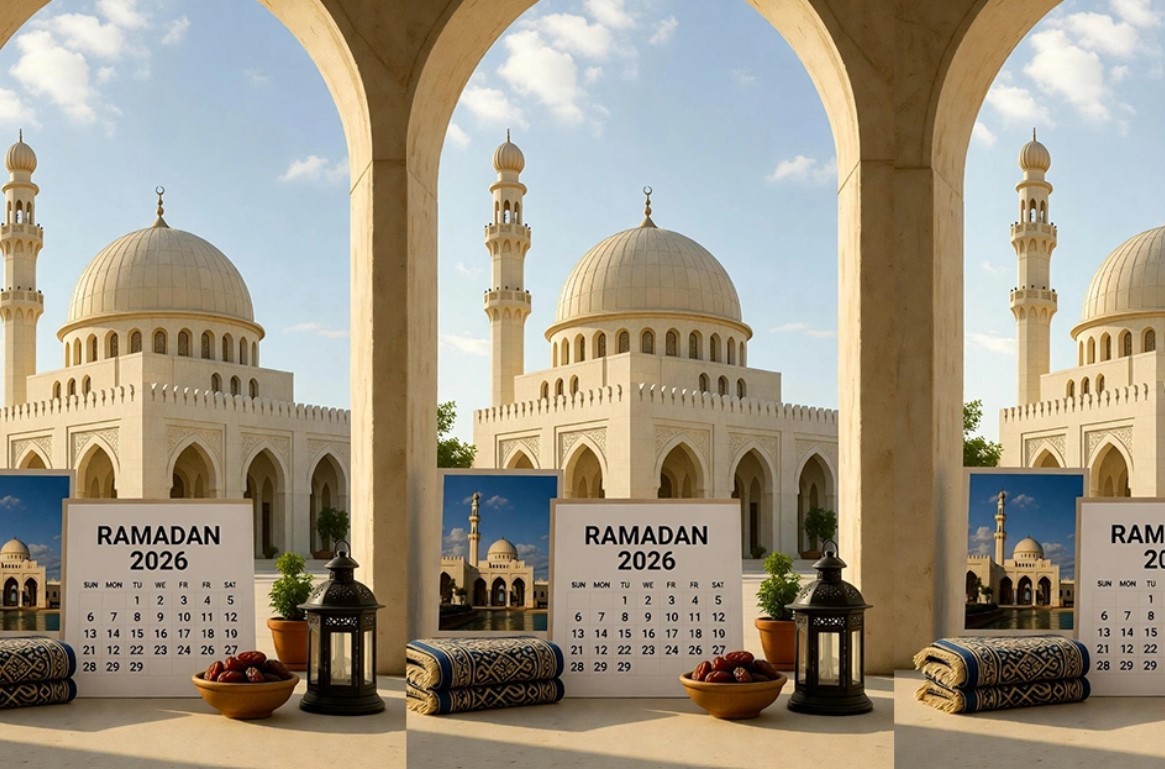Islamic Calendar in 2025: Important Dates, Holidays, Observances and Celebrations
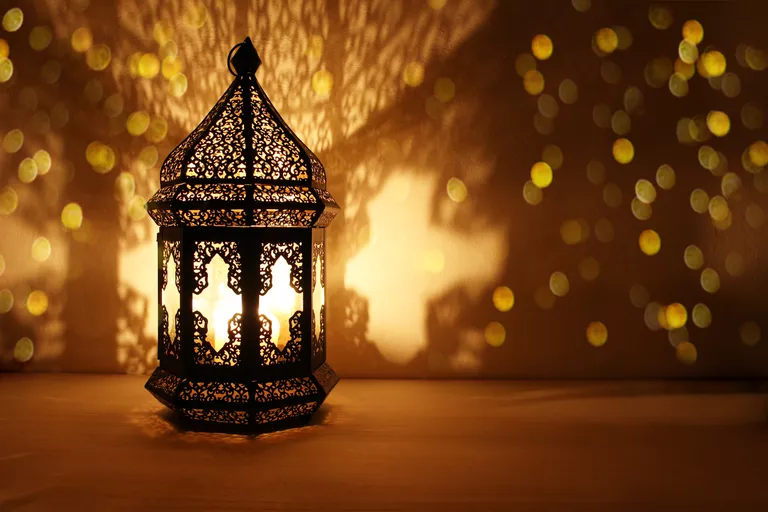 Why Is Ramadan Important for the Muslim Community: Dos and Donts Why Is Ramadan Important for the Muslim Community: Dos and Donts |
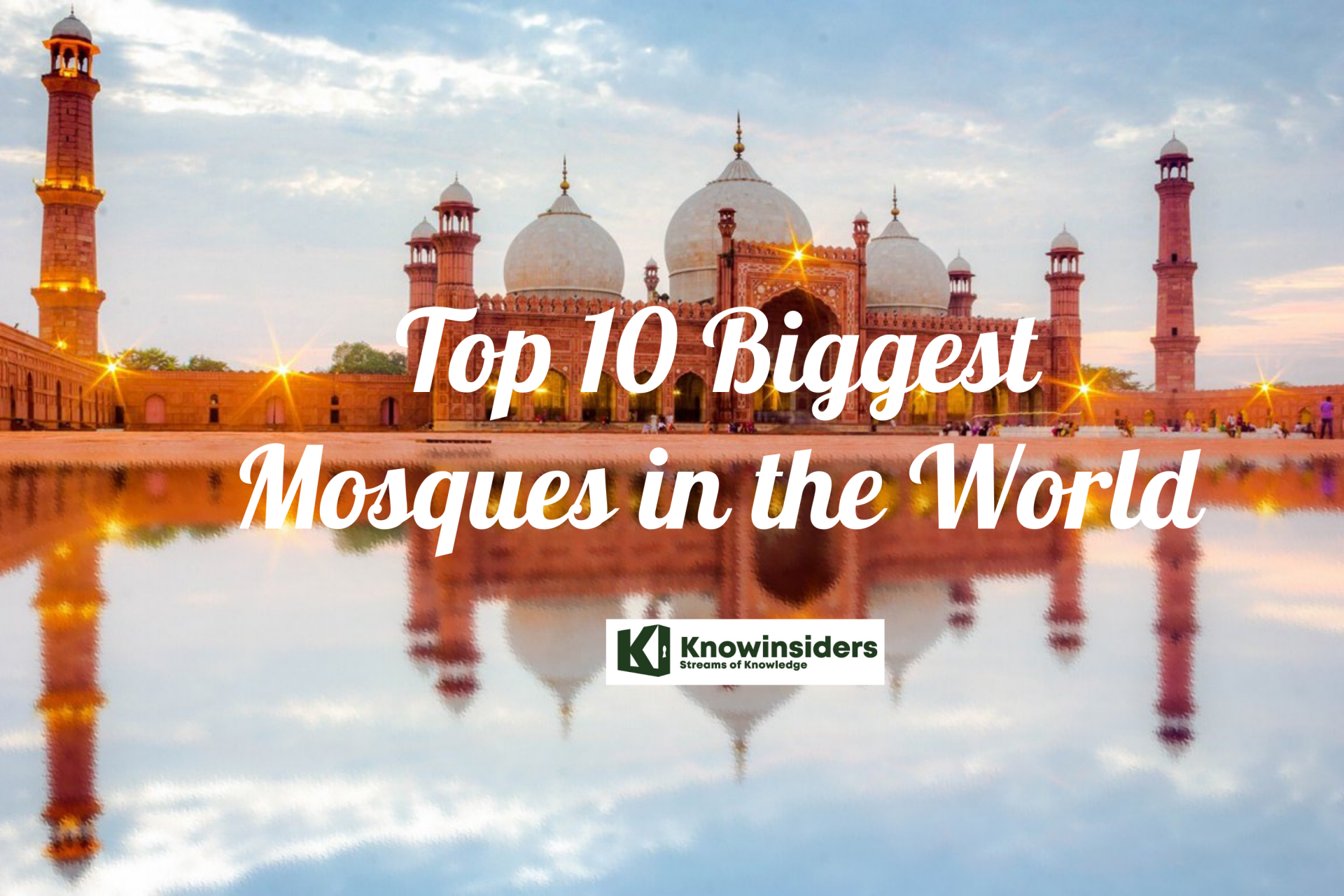 Top 10 Biggest and Magnificent Mosques in the World Top 10 Biggest and Magnificent Mosques in the World |
About Islam
Islam, along with Jews and Christians, as one of the three main Abrahamic faiths. Islam has about 1.8 billion followers around the world, with 3.45 million living in the United States. The Pew Research Center says that Islam is the world's fastest-growing religion.
Eid al-Fitr and Eid al-Adha are the two most important holidays for Muslims every year. This fact sheet talks about the meanings of the two holidays and how American Muslims celebrate them. It also talks about how elected officials have recognized the holidays. The fact sheet also gives a short summary of two other major Muslim holidays.
This fact sheet is meant to help offices in Congress with work that has to do with Islamic holidays. It has excerpts of speeches and remarks from the Congressional Record, as well as presidential proclamations and remarks and some historical and cultural sources. This is one of a set of fact sheets from the Congressional Research Service about US religious holidays.
Here are some key dates and their significance in the Islamic calendar for 2025.
What is The Islamic (Hijri) Calendar?
The Islamic calendar, also known as the Hijri calendar, is a lunar calendar consisting of 12 months in a year of 354 or 355 days. It is used to determine the proper days of Islamic holidays and rituals. As we approach 2025, Muslims around the world look forward to observing important religious dates, holidays, and popular celebrations.
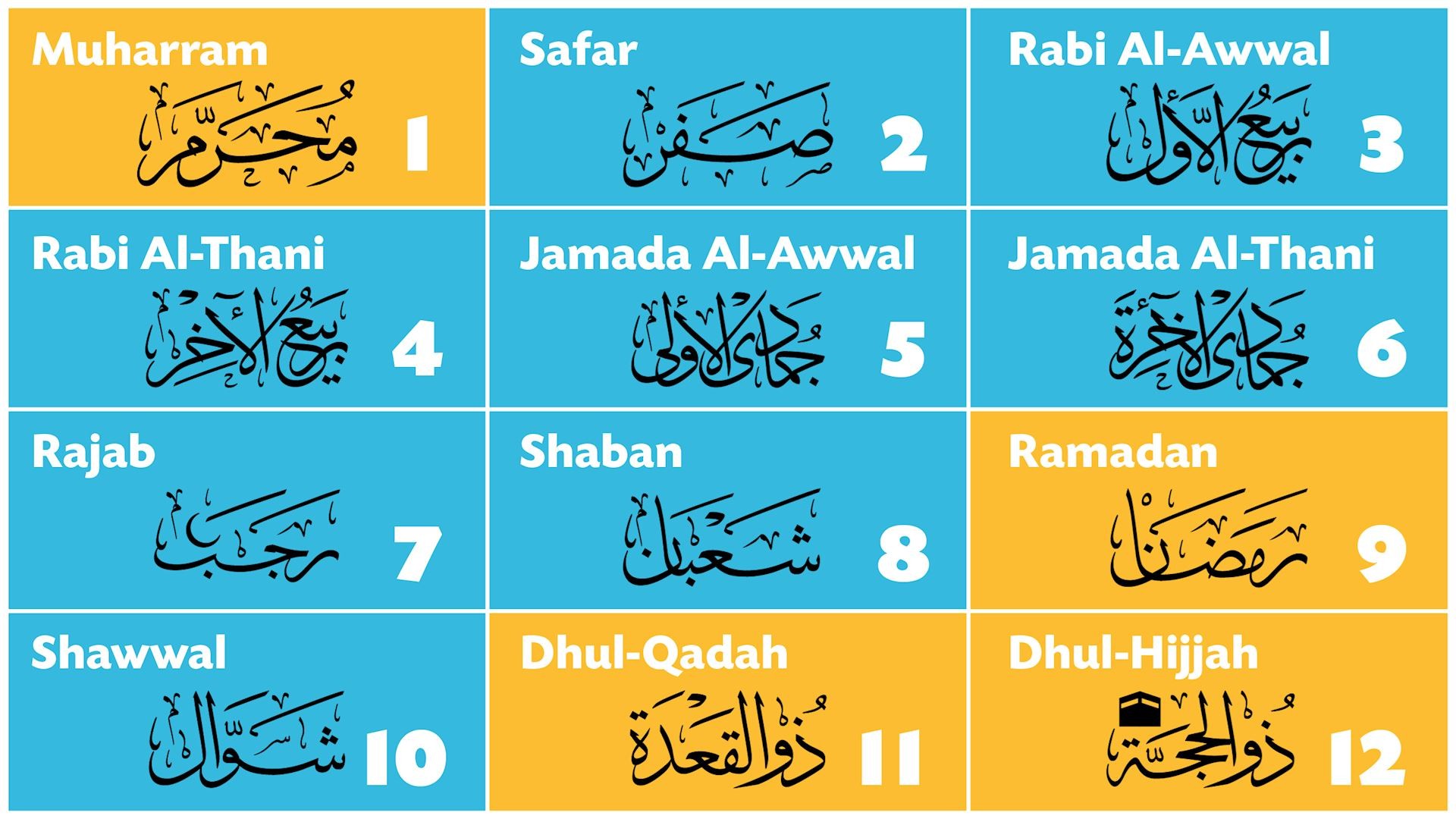 |
| Islamic (Hijri) Calendar |
The Islamic (Hijri) calendar is a lunar calendar consisting of 12 months in a year of 354 or 355 days. It is used by Muslims around the world to determine the proper days for Islamic holidays and rituals. The calendar is based on the phases of the moon, and each month starts with the sighting of the new crescent moon.
The Hijri calendar was introduced in 622 CE by Caliph Umar ibn Al-Khattab, in reference to the Hijra, the migration of Prophet Muhammad from Mecca to Medina. This event marks the beginning of the Islamic era, and the calendar is often referred to as the Hijri calendar.
Structure of the Hijri Calendar
The Hijri calendar is composed of 12 months:
• Muharram
• Safar
• Rabi' al-Awwal
• Rabi' al-Thani
• Jumada al-Awwal
• Jumada al-Thani
• Rajab
• Sha'ban
• Ramadan
• Shawwal
• Dhu al-Qi'dah
• Dhu al-Hijjah
Each month can be either 29 or 30 days, depending on the sighting of the moon. The year in the Hijri calendar is approximately 10 to 12 days shorter than the Gregorian calendar year, causing the Islamic holidays to move backward each year when compared to the Gregorian calendar.
Who Uses the Hijri Calendar?
The Hijri calendar is primarily used by Muslims worldwide. It plays a crucial role in the religious life of Muslims as it determines the dates of significant religious events and rituals, including:
• Ramadan: The holy month of fasting.
• Eid al-Fitr: The festival marking the end of Ramadan.
• Eid al-Adha: The festival of sacrifice, coinciding with the Hajj pilgrimage.
• Islamic New Year: The beginning of the new year in the Hijri calendar.
• Ashura: The day of mourning for the martyrdom of Hussein ibn Ali.
While the Gregorian calendar is widely used for civil purposes in most Muslim-majority countries, the Hijri calendar remains essential for religious and cultural practices. Countries like Saudi Arabia and some other Gulf states officially use the Hijri calendar alongside the Gregorian calendar. In other Muslim-majority countries, the Hijri calendar is used mainly for religious purposes and Islamic events.
What Islamic Year is in 2025?
The Islamic year in 2025 will correspond to 1446 and 1447 AH (Anno Hegirae, Latin for "in the year of the Hijra"). The Islamic calendar is lunar-based, consisting of 354 or 355 days, which causes it to shift by about 10 to 12 days earlier each year compared to the Gregorian calendar.
In 2025, the Islamic year 1446 will start around mid-June, and the year 1447 will begin around early June 2025. The exact dates can vary slightly based on the sighting of the moon.
Top 15 Key Dates and Holidays in the Islamic Calendar 2025
1. Wiladat: Imam Ali (13th Rajab 1447 AH)
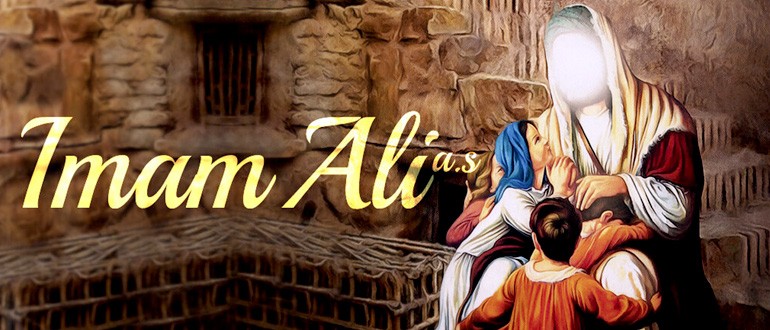 |
| Wiladat: Imam Ali |
Gregorian Date: January 13, 2025
The birth of Imam Ali ibn Abi Talib, the cousin and son-in-law of Prophet Muhammad, is celebrated on the 13th of Rajab. Imam Ali is highly revered in Islam, particularly among Shia Muslims. His birth is celebrated with prayers, recitations of his life and teachings, and various cultural and religious activities. Muslims honor his legacy of bravery, knowledge, and piety. Festivities often include special meals, charitable acts, and public gatherings to share stories of Imam Ali's virtues and contributions to Islam.
2. Maba’ath (27th Rajab 1447 AH)
Gregorian Date: January 27, 2025
Maba’ath, also known as the day of the Prophet's mission, marks the anniversary of the day when Prophet Muhammad received his first revelation from the angel Gabriel. This event signifies the beginning of his prophethood and the start of the Islamic message. Muslims observe this day with reverence, offering special prayers and recitations of the Quran. It is a time to reflect on the importance of the Prophet's message and his role as a guide for humanity. In some communities, there are educational programs and lectures about the life and teachings of the Prophet Muhammad.
3. Lailat al-Miraj (27th Rajab 1447)
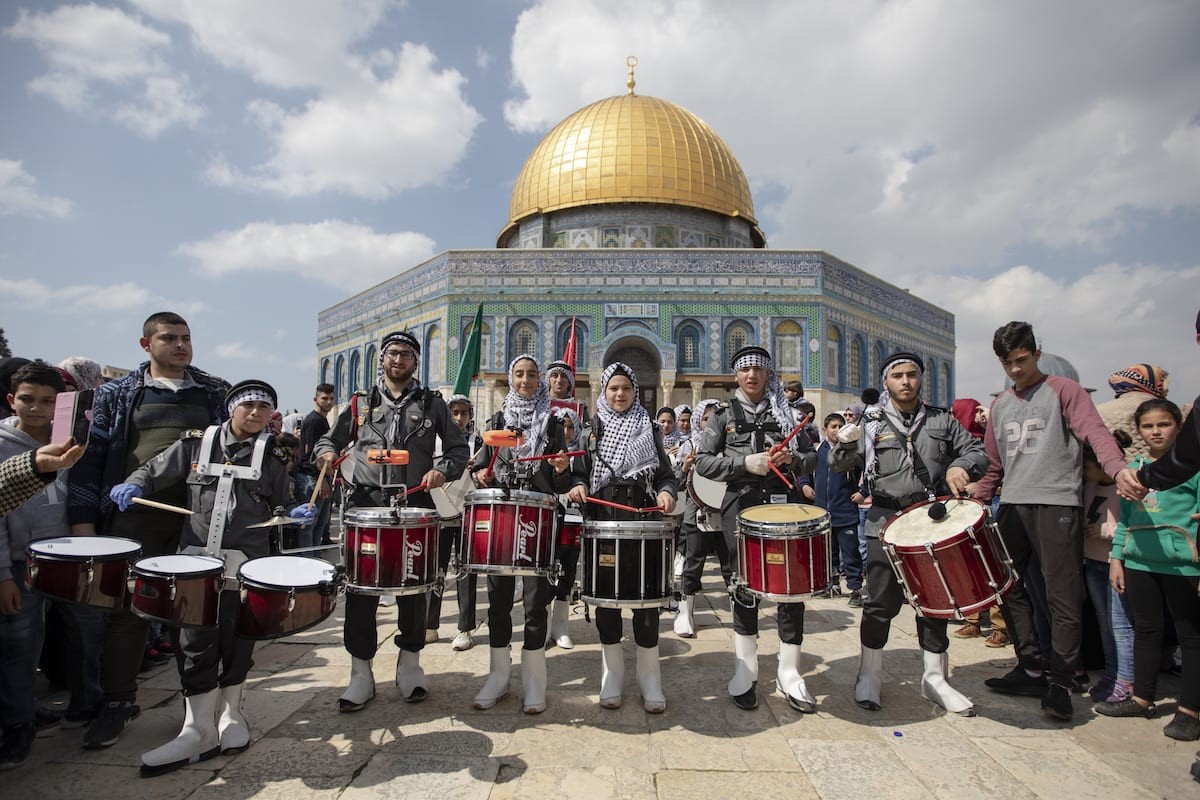 |
| Lailat al-Miraj |
Gregorian Date: January 27, 2025
Lailat al-Miraj, also known as the Night Journey, commemorates the night when Prophet Muhammad is believed to have been taken on a journey from Mecca to Jerusalem and then ascended to heaven. This event is said to have occurred in 621 CE. Muslims mark this night by offering special prayers, reciting the Quran, and reflecting on the significance of the event. The story of Lailat al-Miraj is detailed in the Quran and Hadith, emphasizing the Prophet's close connection with God and his role as a messenger.
4. Laylat al-Bara'at (15th Sha'ban 1447 AH)
Gregorian Date: February 14, 2025
Laylat al-Bara'at, also known as Shab-e-Barat, is observed on the 15th night of Sha'ban. It is a night of forgiveness and salvation, where Muslims believe that God descends to the lowest heaven to grant forgiveness and blessings to those who seek it. Traditions include staying up all night in prayer, reading the Quran, and performing other religious acts. Some cultures also prepare special meals and share food with the poor and neighbors.
5. Promised Savior Day (15th Sha'ban 1447 AH)
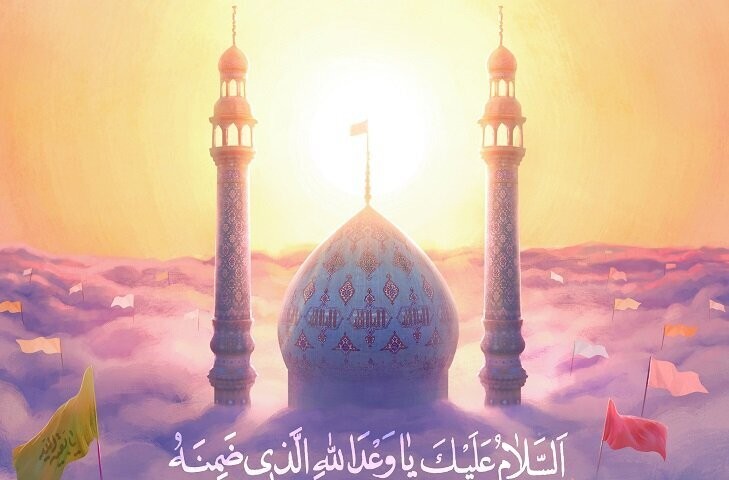 |
| Promised Savior Day |
Gregorian Date: February 14, 2025
Promised Savior Day, also known as the birth anniversary of Imam al-Mahdi, is celebrated on the 15th of Sha'ban. Imam al-Mahdi is believed by Shia Muslims to be the twelfth and final Imam who will reappear as the savior of humanity. This day is marked with prayers, recitations, and celebrations of his anticipated return, which is believed to bring justice and peace to the world. Many Muslims spend the night in prayer, asking for the Imam's swift return and the establishment of divine justice.
6. Ramadan (1st Ramadan 1447)
Gregorian Date: March 1, 2025
Ramadan is the ninth month of the Islamic calendar and is observed by Muslims worldwide as a month of fasting, prayer, reflection, and community. Fasting from dawn until sunset during Ramadan is one of the Five Pillars of Islam. Muslims refrain from eating, drinking, smoking, and sinful behavior during the daylight hours. The fast is broken each day with a meal called iftar, and the pre-dawn meal before the fast begins is called suhoor. Ramadan is a time for increased devotion, with additional nightly prayers (Tarawih) performed in congregation.
Read More: Happy Ramadan: Top 25 Most Popular Words/Phrases and Pronunciation in Arabic, English
7. Martyrdom of Imam Ali Ibn Aboutaleb (21st Ramadan 1447 AH)
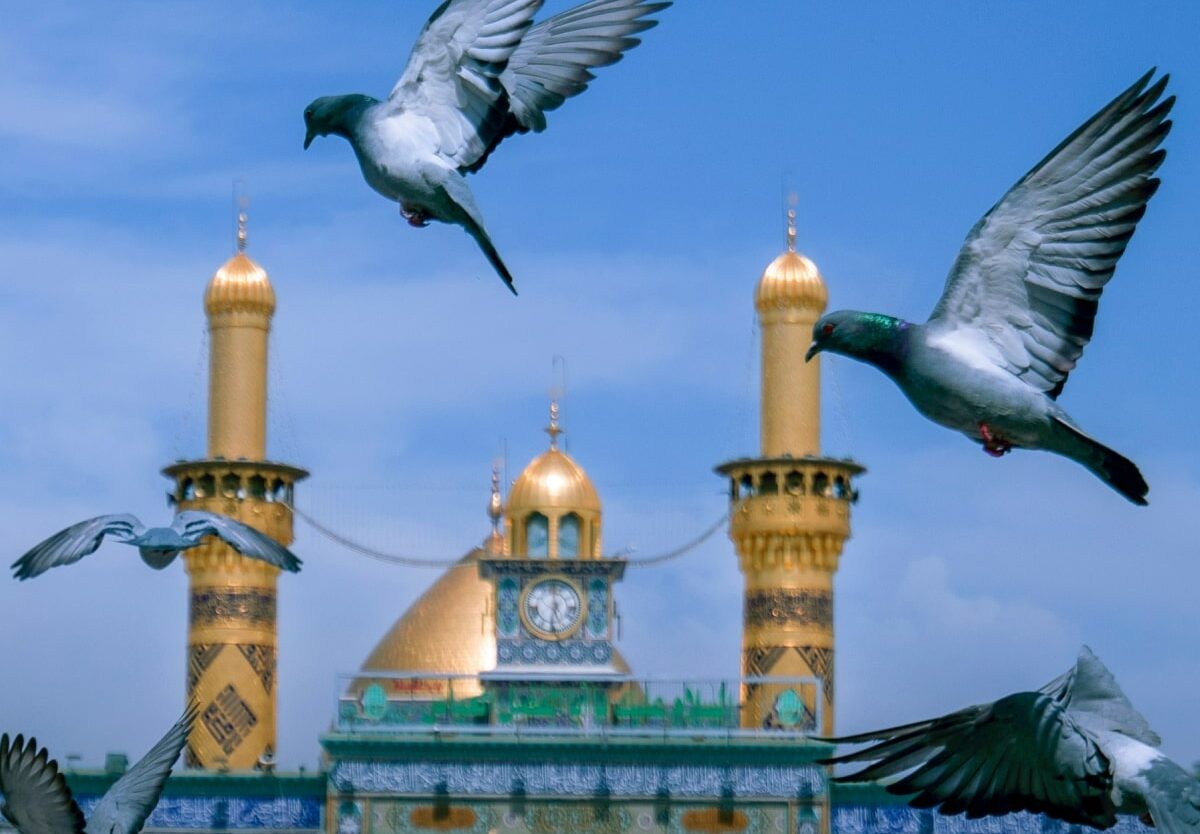 |
| Martyrdom of Imam Ali Ibn Aboutaleb |
Gregorian Date: March 21, 2025
The martyrdom of Imam Ali ibn Abi Talib is commemorated on the 21st of Ramadan. Imam Ali, the first Shia Imam and the fourth caliph of Sunni Islam, was assassinated while praying in the Great Mosque of Kufa. His martyrdom is a significant event, particularly for Shia Muslims, who observe it with mourning and remembrance. The day is marked by recitations of elegies, public processions, and sermons recounting Imam Ali's life, his dedication to justice, and his role in early Islamic history. Many Muslims engage in acts of charity and reflection on his teachings and sacrifice.
8. Laylat al-Qadr (27th Ramadan 1447 AH)
Gregorian Date: March 27, 2025
Laylat al-Qadr, also known as the Night of Decree or the Night of Power, is considered the holiest night in the Islamic calendar. It is believed to be the night when the Quran was first revealed to Prophet Muhammad. Muslims believe that prayers and good deeds performed on this night are multiplied in value, making it a time of intense worship, prayer, and reflection. The exact date is not specified, but it is traditionally observed on the 27th night of Ramadan. Many Muslims spend the night in prayer and recitation of the Quran.
9. Eid al-Fitr (1st Shawwal 1447)
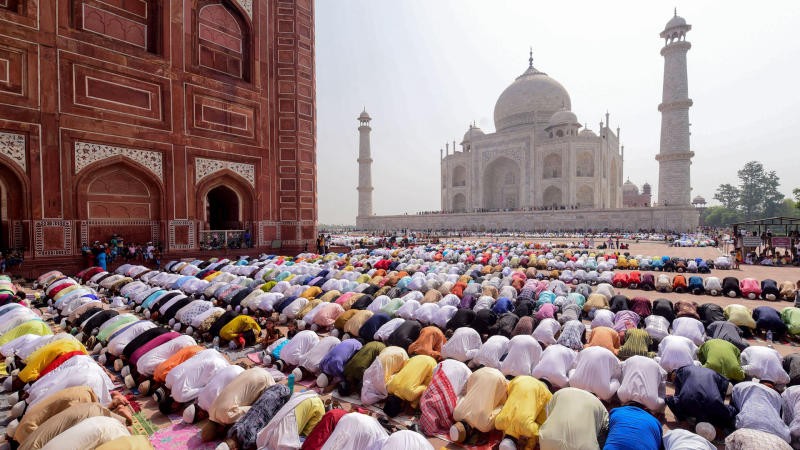 |
| Eid al-Fitr |
Gregorian Date: March 31, 2025
Eid al-Fitr, also known as the "Festival of Breaking the Fast," is celebrated at the end of Ramadan. It is a joyous occasion marked by communal prayers, feasting, giving of charity (Zakat al-Fitr), and social gatherings. Muslims dress in their finest clothes and participate in a special prayer service held in large mosques or open spaces. The day begins with the Eid prayer, followed by a sermon and a prayer for forgiveness, mercy, and peace for all living beings.
10. Eid al-Adha (10th Dhu al-Hijjah 1447)
Gregorian Date: May 9, 2025
Eid al-Adha, or the "Festival of Sacrifice," is the second of two Islamic holidays celebrated worldwide each year (the other being Eid al-Fitr). It honors the willingness of Ibrahim (Abraham) to sacrifice his son as an act of obedience to God. In commemoration of this, an animal (usually a sheep, goat, or cow) is sacrificed, and the meat is distributed among family, friends, and those in need. Eid al-Adha also coincides with the annual Hajj pilgrimage to Mecca, which is one of the Five Pillars of Islam. The festival begins with a special prayer service, followed by a sermon and the ritual sacrifice.
11. Waqf al Arafa – Hajj (9th Dhu al-Hijjah 1447 AH)
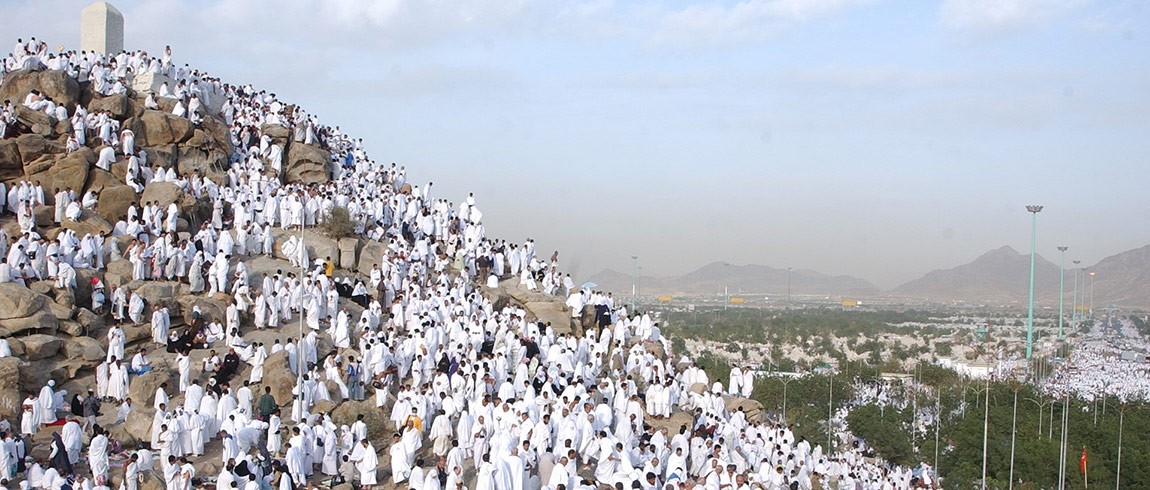 |
| Waqf al Arafa – Hajj |
Gregorian Date: June 5-6, 2025
Waqf al Arafa, or the Day of Arafah, is the second day of the Hajj pilgrimage and falls on the 9th of Dhu al-Hijjah. It is considered one of the most important days in Islam, as pilgrims gather on the plain of Arafat to perform prayers and supplications, seeking forgiveness and mercy from God. For those not on pilgrimage, it is recommended to fast on this day, as it is believed to expiate the sins of the previous year and the coming year. The Day of Arafah precedes Eid al-Adha and is a time of intense worship and reflection.
12. Eid al-Ghadir (18th Dhu al-Hijjah 1447 AH)
Gregorian Date: June 14-15, 2025
Eid al-Ghadir commemorates the event at Ghadir Khumm, where Prophet Muhammad is believed to have declared Ali ibn Abi Talib as his successor. This day is particularly significant for Shia Muslims, who see it as the formal appointment of Ali as the Prophet's rightful successor. The day is marked with celebrations, feasts, and public declarations of loyalty to Ali and the Ahl al-Bayt (the Prophet's family). There are also special prayers and recitations that recount the event and its significance.
13. Islamic New Year (1st Muharram 1447)
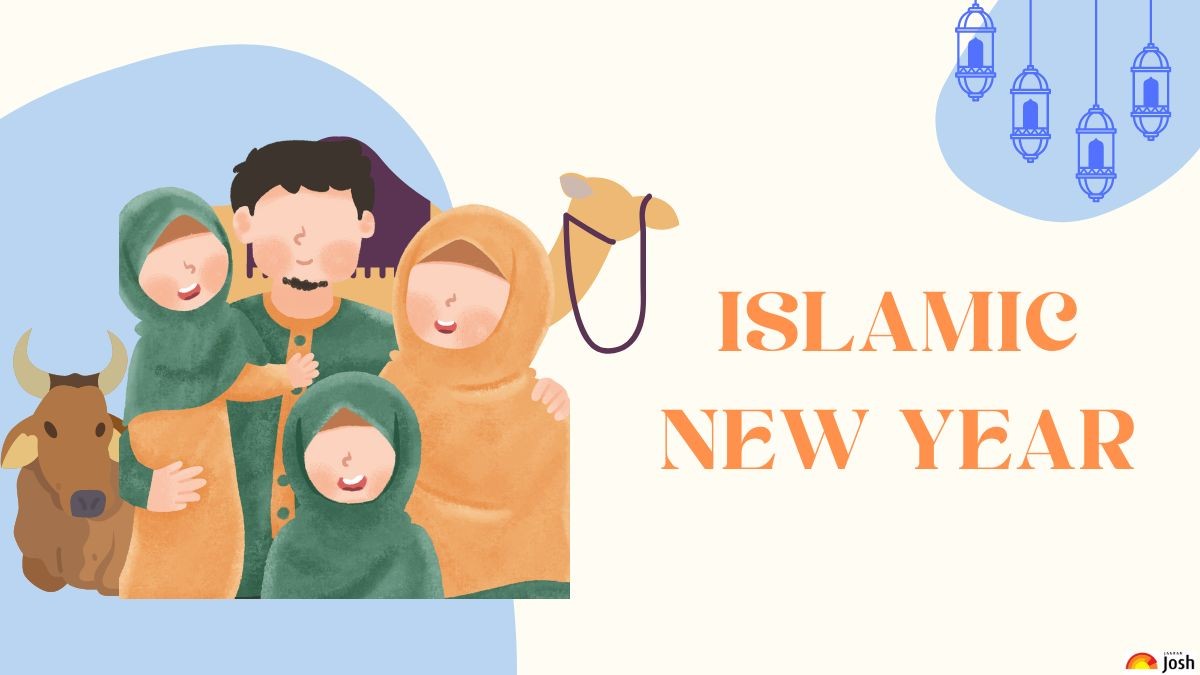 |
| Islamic New Year |
Gregorian Date: June 28, 2025
The Islamic New Year, also known as Hijri New Year or Al-Hijra, marks the beginning of the Islamic lunar calendar. It commemorates the Hijra (migration) of the Prophet Muhammad from Mecca to Medina in 622 CE. Unlike the celebrations of the Gregorian New Year, the Islamic New Year is a time for reflection and remembrance. Muslims often spend the day in prayer and reflection on the lessons of the Hijra, seeking to draw inspiration from the Prophet's journey and the early Muslim community's trials and triumphs.
14. Ashura (10th Muharram 1447)
Gregorian Date: July 7, 2025
Ashura is a significant day for Muslims, observed on the 10th day of Muharram, the first month of the Islamic calendar. For Sunni Muslims, it marks the day Moses and the Israelites were saved from Pharaoh by God, with many choosing to fast. For Shia Muslims, Ashura is a day of mourning the martyrdom of Husayn ibn Ali, the grandson of Prophet Muhammad, at the Battle of Karbala in 680 CE. The day is marked by rituals of mourning, such as reenactments of the battle, public processions, and recitations of elegies.
15. Mawlid al-Nabi (12th Rabi' al-Awwal 1447)
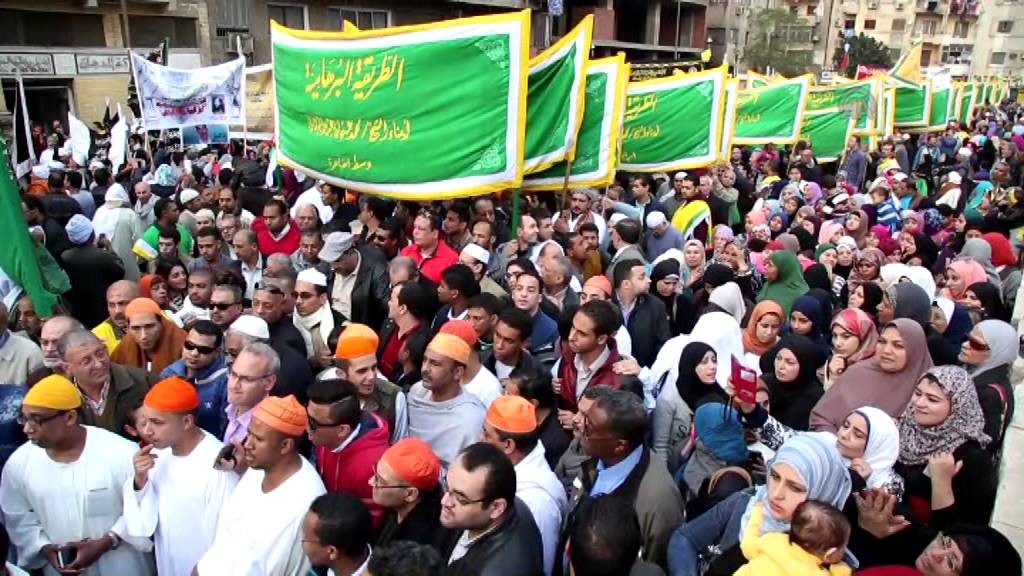 |
| Mawlid al-Nabi |
Gregorian Date: September 5, 2025
Mawlid al-Nabi, or the Birth of the Prophet, is celebrated to commemorate the birth of Prophet Muhammad. Observances vary widely among Muslim communities, with some viewing it as an important celebration while others believe it should not be celebrated in a festive manner.
Common practices include reciting poetry and stories about the Prophet’s life, public processions, and communal meals. In many countries, Mawlid al-Nabi is a public holiday, with events aimed at fostering unity and reflecting on the Prophet's teachings.
Learn More: India Calendar 2025 - Full List of National/Regional Public Holidays: Dates and Celebrations
Popular Celebrations and Observances in the Islamic Calendar 2025
In addition to the major holidays, there are several other observances and cultural celebrations in the Islamic calendar:
Lailat al-Qadr (27th Ramadan 1447)
Laylat al-Qadr is considered the holiest night of the year for Muslims. According to Islamic tradition, worship performed on this night is believed to be better than a thousand months of worship. Muslims spend Laylat al-Qadr in intensive worship, including performing additional prayers (Salat), reciting the Quran, and making supplications (duas). Special prayers, known as Taraweeh, are performed in congregation during Ramadan, and additional prayers known as Qiyam al-Layl (night prayers) are often offered on this night.
While Laylat al-Qadr is most commonly observed on the 27th night of Ramadan, it is also believed to potentially fall on any of the last ten odd-numbered nights of the month. Consequently, many Muslims increase their worship during the last ten nights of Ramadan to ensure they observe Laylat al-Qadr.
Islamic New Year’s Eve
Although not as widely celebrated as the Gregorian New Year, some communities mark the eve of the Islamic New Year with special prayers and gatherings.
Islamic New Year’s Eve, marking the end of the lunar year is a time for reflection and preparation for the new year. Muslims often spend the evening in prayer, reciting the Quran, and contemplating the lessons from the Hijra of Prophet Muhammad. The eve of the Islamic New Year is typically a quieter, more introspective occasion compared to the celebrations of the Gregorian New Year, focusing on spiritual renewal and gratitude for the past year.
Hijri Month-Specific Observances in Islamic Calendar 2025
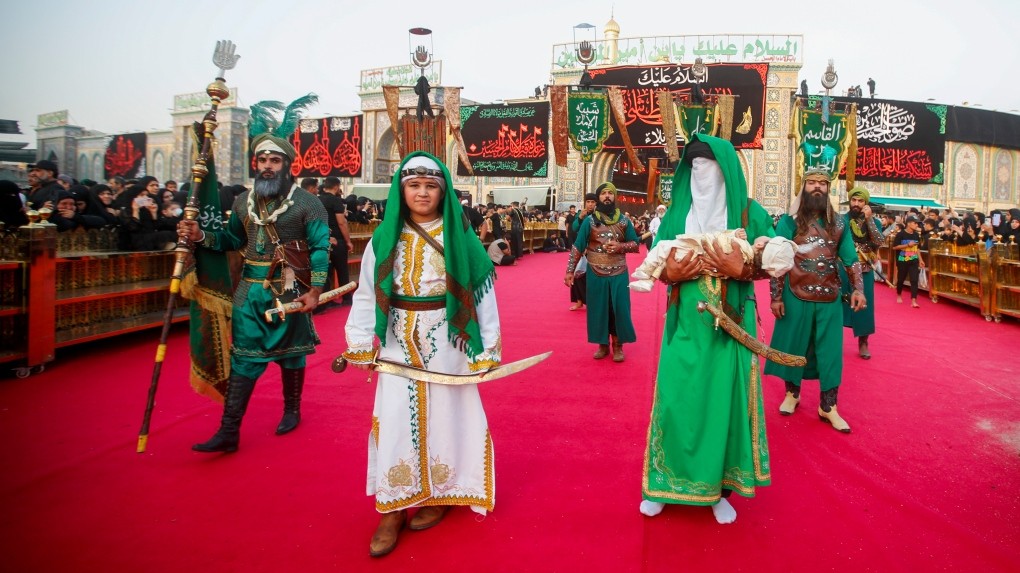 |
| Ashura |
Each month of the Islamic calendar has its own significance, and various communities may have unique traditions and customs.
Muharram
Islamic New Year: Commemorates the Hijra of Prophet Muhammad.
Ashura: Marks the day Moses and the Israelites were saved from Pharaoh (for Sunnis) and the martyrdom of Husayn ibn Ali at Karbala (for Shias).
Safar
Mourning for Husayn ibn Ali: In some communities, the mourning period for Husayn continues from Muharram into Safar.
Safar: Some Muslims believe that misfortunes are more likely during this month and therefore engage in additional prayers for protection.
Rabi' al-Awwal
Mawlid al-Nabi: Celebrates the birth of Prophet Muhammad.
Rabi' al-Thani
Sufi Observances: Some Sufi orders commemorate the death anniversaries of their founders in this month.
Jumada al-Awwal
Fatimah's Birth: Celebrates the birth of Fatimah, the daughter of Prophet Muhammad.
Jumada al-Thani
Fatimah's Death: Commemorates the death of Fatimah, the daughter of Prophet Muhammad.
Rajab
Lailat al-Miraj: Marks the night journey and ascension of Prophet Muhammad.
Wiladat of Imam Ali: Celebrates the birth of Imam Ali.
Maba’ath: Commemorates the start of Prophet Muhammad’s mission.
Sha'ban
Laylat al-Bara'at: Night of forgiveness and salvation.
Promised Savior Day: Birth anniversary of Imam al-Mahdi.
Ramadan
Fasting: Observed from dawn to sunset.
Laylat al-Qadr: The night of the first revelation of the Quran.
Martyrdom of Imam Ali: Commemorates the assassination of Imam Ali.
Shawwal
Eid al-Fitr: Celebrates the end of Ramadan.
Dhu al-Qi'dah
Preparation for Hajj: Pilgrims prepare for the Hajj pilgrimage, which takes place in the following month.
Dhu al-Hijjah
Hajj: Annual pilgrimage to Mecca.
Waqf al Arafa: Day of standing at Arafat during Hajj.
Eid al-Adha: Festival of Sacrifice.
Eid al-Ghadir: Commemorates the event at Ghadir Khumm.
In Conclusion
The Islamic calendar in 2025 is filled with significant religious dates and celebrations that are central to the faith and practice of Muslims around the world. These occasions provide an opportunity for communal gathering, spiritual reflection, and the reinforcement of faith.
As each Islamic year brings with it a cycle of meaningful observances, 2025 promises to be a year of devotion, celebration, and unity for the Muslim community globally.
 2025 Calendar for Asian Countries with the Public Holidays 2025 Calendar for Asian Countries with the Public Holidays Check out the Calendar 2025 for Every Asian Country or Territory with the Public Holidays. |
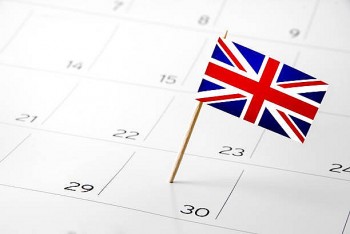 2025 UK Calendar - Full List of Public Holidays And Observances: Dates and Celebrations 2025 UK Calendar - Full List of Public Holidays And Observances: Dates and Celebrations Whether you are planning a vacation, organizing events, or simply looking to make the most of your time off, this comprehensive guide provides all the ... |
 2025 Canada Calendar - Full List of Public Holidays And Observances: Dates and Celebrations 2025 Canada Calendar - Full List of Public Holidays And Observances: Dates and Celebrations Let's explore the 2025 Canada Calendar for a complete list of national and regional holidays, festivals, and observances, including dates and celebrations. |

